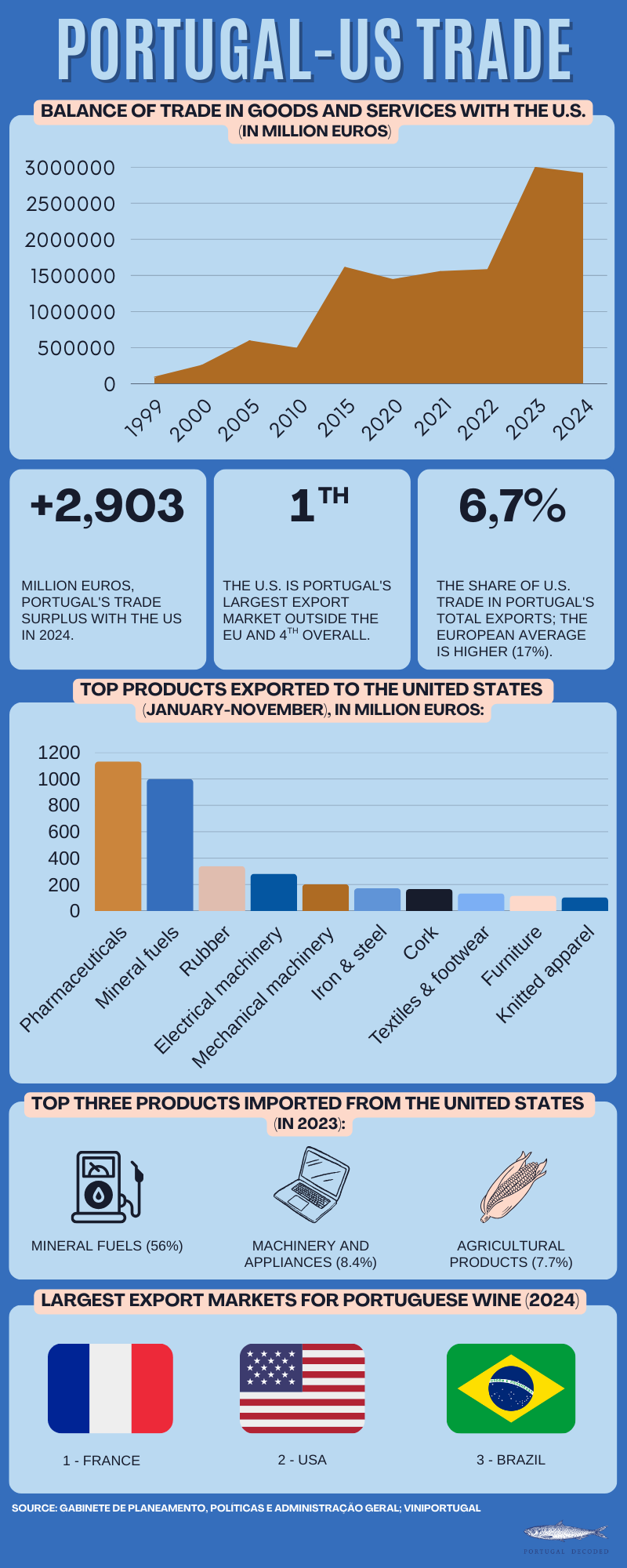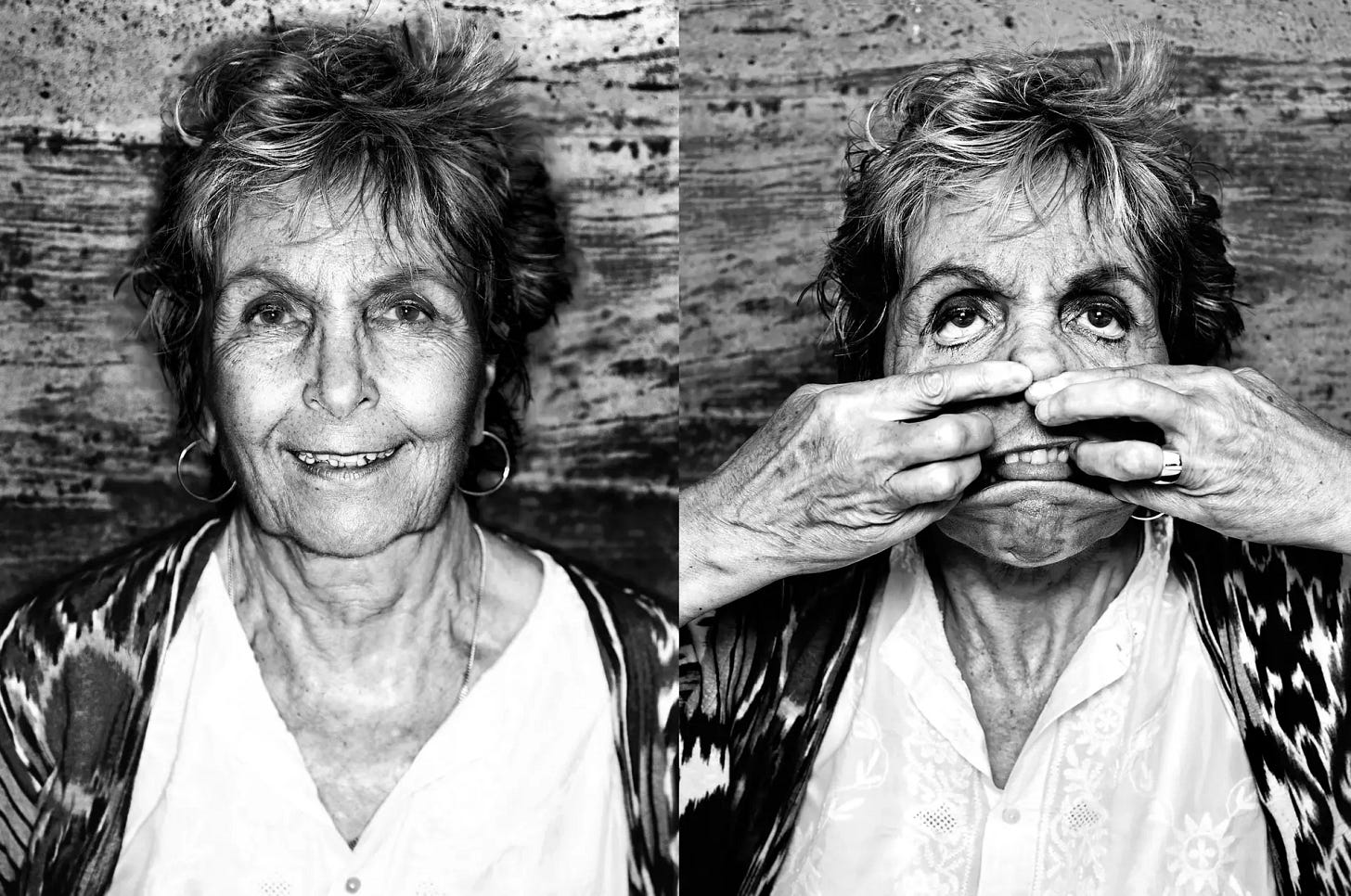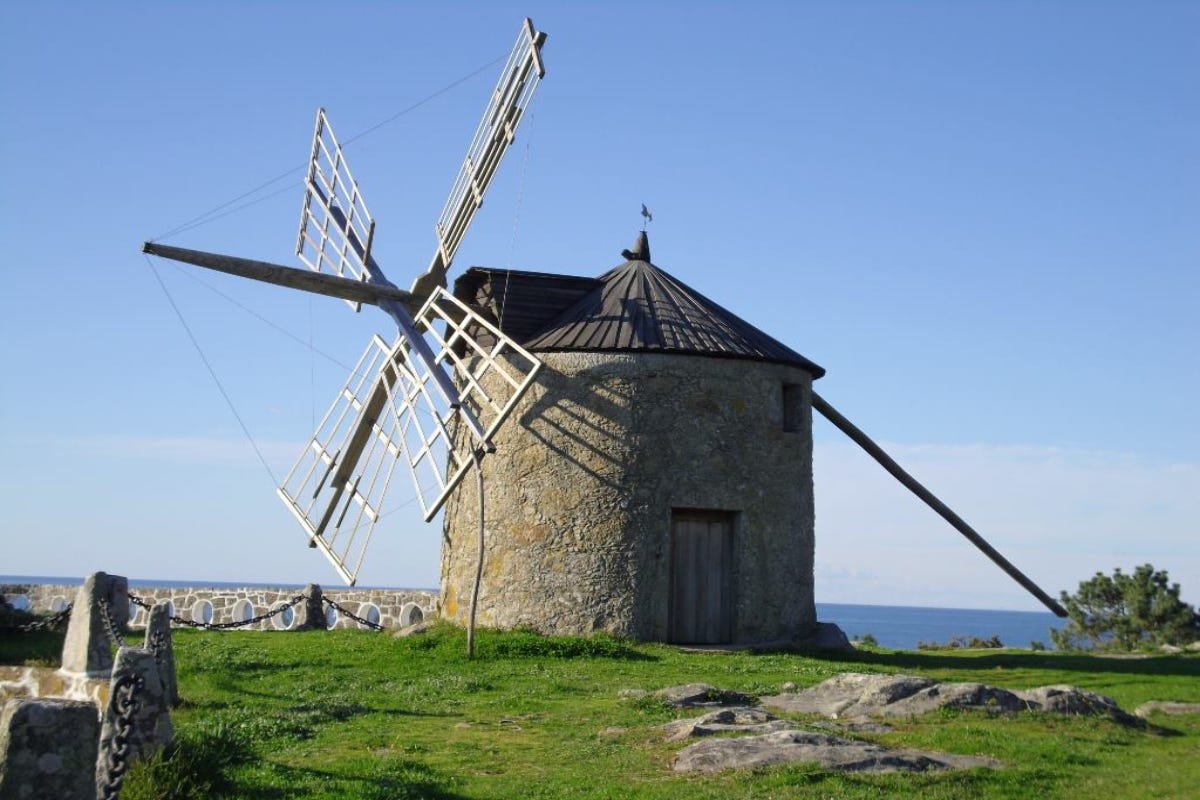Friday Briefing: Portugal braces for impact of Trump’s tariffs
Good morning and welcome to PORTUGAL DECODED. No, it's not an April's fool prank. Trump’s tariff hikes could have a "significant negative impact" on Portugal's economy. Here’s what you need to know.
TALK OF THE TOWN

POLITICS
Political leaders will face off in televised political debates starting next week, on April 7. The highlight will be the final showdown on April 28 between PM Luís Montenegro and Socialist (PS) leader Pedro Nuno Santos (More).
The latest opinion poll shows a technical tie between the ruling AD (29%) and PS (27%) ahead of Portugal’s May 18 elections, with smaller parties gaining ground. Leader ratings have declined, and a single-party majority appears unlikely (More).
SOCIETY
Following similar actions by European states such as Norway, Germany, France, and the UK, Portugal has issued a travel warning for the US, emphasizing that a visa or travel authorization does not guarantee entry (More).
Portugal has officially become the first country to ban deep-sea mining until 2050, a decision praised by environmental organizations that strengthens its leadership in ocean conservation (More).
ECONOMICS
Portugal’s inflation rate continued its downward trend in March, falling to 1.9%, down from 2.4% in the previous month. It is the lowest inflation rate since the summer of 2024 (More).
Tesla’s sales in Portugal fell 25.7% in the first quarter of 2025, reflecting a broader European decline. Despite the decline, Tesla remains the best-selling EV brand in Portugal, though competition is closing in (More).
CULTURE AND SPORTS
The program for the 51st anniversary of the Carnation Revolution has been unveiled, highlighting five decades since Portugal’s first democratic elections and the independence of its former African colonies and East Timor (More).
The dual art exhibition Lisboa Não Sejas Francesa (“Lisbon Don’t Be French”) has opened in Lisbon and Paris, showcasing artists from both cities and exploring how cultural exchange shapes artistic identity, tradition, and reinvention (More).
If enjoy reading PORTUGAL DECODED, please consider donating to keep it free and independent – your generosity means everything!
DECODER
What is the expected impact of Trump’s tariffs on Portugal?
It is still too early to fully assess the impact of the tariffs announced by Donald Trump. Yesterday, despite the negative trend among major European markets, the Lisbon stock exchange closed higher, with the PSI local index rising 0.13%, driven by gains in energy companies EDP and EDP Renováveis. However, in its March economic bulletin, the Bank of Portugal (BdP) cautioned that “a scenario involving U.S. tariff hikes on EU imports, retaliation, and increased uncertainty/weakened confidence would have a significant negative effect on Portugal’s economic activity.” According to BdP projections, Portugal’s GDP could grow 1.1% less than forecast over three years. The direct impact alone could reduce GDP by 0.7%, primarily in the first year. Further effects from lower investment and weaker private consumption could slow growth even more, with GDP expected to contract by 0.9 percentage points in the first year and 0.4 percentage points in the second. The central bank warned that rising trade barriers heighten economic uncertainty, undermining business and consumer confidence, which could further weaken economic growth.
Which business sectors are expected to be hardest hit by the tariffs?
In its March economic bulletin, the Bank of Portugal (BdP) projected which sectors of the Portuguese economy are most vulnerable to U.S. tariffs: “Among manufacturing firms that export to the U.S. market, 70% direct up to 5% of their total sales there, while 12% send between 5% and 10%. At the other extreme, fewer than 4% of U.S.-exporting firms rely on that market for over 40% of their total sales,” the report noted, before Trump’s tariff announcements. Defining “high exposure” as 10% or more of total sales, BdP (using 2023 data) identified textiles and non-metallic mineral products (including glass, ceramics, and cement) as particularly vulnerable. Additionally, beverages, IT/communications equipment, electronics, optics, and leather goods also have a significant share of firms highly dependent on the U.S. market.
Has the business sector already reacted?
Wine producers have already voiced concerns. The president of the Douro Intermunicipal Community (CIM), Luís Machado, warned yesterday about the immediate impact on the wine industry, stressing the need to explore new markets. “The U.S. has been a strong market for us, one that we’ve built and consolidated over the years. Naturally, this new tariff will have an immediate impact on business,” said Machado, who is also the mayor of Santa Marta de Penaguião, in an interview with Lusa News Agency. However, he also emphasized that this could be an opportunity for the Douro region to diversify its export markets. Meanwhile, Galp’s executive director for industrial operations stated last week that the company has the “flexibility” to redirect gasoline exports from its Sines refinery, Portugal’s second-largest U.S. export after pharmaceuticals in 2023, to other markets.
What is the government doing to support companies?
Portugal’s Minister of Economy, Pedro Reis, announced the creation of a monitoring group to track the tariff war and the development of support measures through Compete 2030—a government program funding projects with EU structural funds focused on R&D, technological advancement, and business expansion—and Banco de Fomento, a state-owned development bank providing financial guarantees and support for industrial equipment and internationalization. Next week, he will also begin a round of meetings with 16 business associations to assess the impact of the tariffs, including: AFIA (Automotive Industry Manufacturers), EPCOL (Portuguese Fuel Companies), APIB (Rubber Industry), ANIMEE (Electrical & Electronic Sector Companies), AIP (Portuguese Industrial Association), CIP (Industrial Confederation of Portugal), AIMMAP (Metallurgical & Metalworking Industries), AIMMP (Wood & Furniture Industries), APCOR (Cork Industry), APPICAPS (Footwear & Leather Goods), APIC (Leather Industry), ATP (Textile & Clothing), ANIVEC (Clothing & Apparel), ANITLAR (Home Textile), ANIL (Wool Industry), and AEP (Business Association of Portugal). However, Portugal must balance national measures with EU-wide coordination, as trade policy falls under EU jurisdiction. Minister Reis cautioned that excessive EU retaliatory tariffs could increase costs for intermediate goods, negatively affecting domestic industries. He emphasized the need for a firm, strategic, and coherent European response to mitigate risks while safeguarding Portugal’s economic interests.
TIPS OF THE WEEK
Lisbon
Kenton Thatcher: Sessions
Running until April 26, this exhibition at the Sociedade Nacional de Belas-Artes showcases 120 black-and-white portraits by award-winning photographer Kenton Thatcher of notable Portuguese figures, including Cristiano Ronaldo, painter Paula Rego, President Marcelo Rebelo de Sousa, and architect Álvaro Siza Vieira. Thatcher, who moved to Portugal 33 years ago, has become a leading photographer and an active member of the English community in Lisbon. In 2022, he was awarded an MBE for his contributions to the creative arts and charity in Portugal. Alongside the exhibition, he also published a book compiling his work, which serves as a tribute to the power of photography. The exhibition is free to visit on weekdays from 12:00 to 19:00 and on Saturdays from 14:00 to 19:00. The accompanying book is available for purchase at the venue.
Porto
Camané and Mário Laginha
After several successful concerts together, fado star Camané and jazz virtuoso Mário Laginha released Aqui Está-se Sossegado in 2019 - an album of refined elegance, meticulously crafted to highlight the seamless connection between piano and voice that was evident from their very first collaboration. The repertoire blends twenty traditional fado pieces, sung by Camané, Portugal’s leading male fado singer, with new compositions by Laginha—who had previously set to music a poem by Álvaro de Campos (“Ai Margarida”) for one of Camané’s recent albums. Their upcoming performance at Casa da Música on April 9 promises a truly special moment, where the artists will bring to life the words of some of the greatest Portuguese poets, both classic and contemporary, and melodies ranging from traditional fado to those composed by inspired musicians,” according to the show’s synopsis. Tickets range from €20 to €30 and are available for purchase online here.
Lisbon, Oeiras and Cascais
World Physical Activity Day
This Sunday, from 10:00 AM to 1:00 PM, more than 15 kilometres of the Avenida Marginal, stretching from Lisbon to Cascais via Oeiras, will be closed to traffic in celebration of World Physical Activity Day. The initiative allows pedestrians, cyclists, and skaters to enjoy the scenic coastal road without vehicle interference. The closure begins in Alcântara (Lisbon), continues through the waterfront of Oeiras, and ends in Parede (Cascais). The municipalities of Lisbon, Oeiras, and Cascais are organizing the event to promote healthier lifestyles and encourage outdoor exercise. Each city will offer various free activities for participants of all ages. Throughout the morning, a variety of free activities will be available, including group fitness classes, health screenings, traditional games, and inflatable play areas across the three municipalities. There will be similar activities throughout the country so make sure to check with your municipality what’s happening this weekend.
Alcoutim
The Smuggling Festival
From April 4-6, 2025, this unique festival, held jointly with Sanlúcar de Guadiana, Spain, revives the 1930s-40s era when smuggling was essential for local survival, offering visitors an immersive journey through time. A temporary floating pedestrian bridge will symbolically reconnect Portugal and Spain across the Guadiana River, allowing attendees to explore both sides freely. The festival brings the past to life with authentic period markets lining the picturesque streets, traditional taverns serving regional delicacies, and over 50 performers presenting street theatre, circus acts, and live music. Historical reenactors in vintage attire will mingle with crowds, while storytellers and exhibitions highlight rural traditions and cross-border solidarity. Visitors are encouraged to dress in 1930s-40s fashion to fully embrace the experience. From acrobatic shows to craft workshops and interactive performances around every corner, the event creates a vibrant open-air celebration of shared heritage. Admission costs 4€ per person, which includes a souvenir scarf and access to all festival days.
Throughout the country
Open Mills
To celebrate National Windmill Day, windmills and watermills across mainland Portugal and the Azores will join Moinhos Abertos (Open Mills), an initiative that will on open, mostly for free, 331 windmills and watermills across Portugal, as well as organize events around them such as walks, fairs and workshops. The full program is available on the website but here’s a brief snapshot: on April 5, from 9:30 AM to 1:00 PM, the Odemira municipality will organize a 4-kilometer guided interpretive walk to two historic waterwheel mills; on April 6-7, five historic mills in Viana do Castelo municipality will open their doors to visitors; on April 12-13, the municipalities of Albergaria-a-Velha (the European municipality with the highest number of catalogued watermills), Vagos, Águeda, Sever do Vouga, and Nelas, will host Portugal’s very first Mills Festival.
If enjoy reading PORTUGAL DECODED, please consider donating to keep it free and independent – your generosity means everything!









This is a great issue. The Smugglers Day article was captivating and all the other articles were so informative.
Another great Friday briefing. Thank you, in particular, for the breakdown of Portugal's trade relationships and the potential impacts and responses to Trump's tariffs.